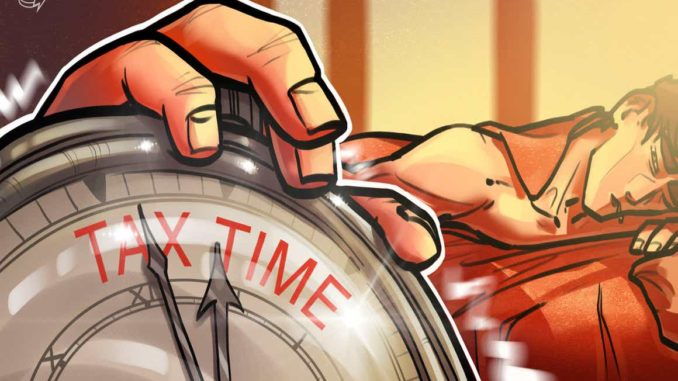
In what could be a big win for the local crypto industry, South Korean lawmakers are close to delaying taxation on digital assets for another year.
Representatives from the Tax Subcommittee in the National Assembly, South Korea’s legislative body, reached a bipartisan agreement on Nov. 29 by approving an amendment that could postpone the crypto tax by one year. If the amendment passes in a parliamentary session on Dec. 2, taxation will begin on January 1, 2023, not 2022 as previously planned.
Democratic Party lawmakers who have been pushing for this delay decried flaws in the information gathering procedures that would be implemented by the National Tax Service (NTS).
One such procedure would be to assume a 0 KRW ($0) cost basis for crypto assets that have been dormant on private wallets where the acquisition price could not be proven. This would create a significant tax burden for long-term holders who have been holding coins on private wallets before the tax legislation comes into effect. They would be effectively taxed on the full asset price, not just the gains made.
Representative Kim Young-jin, Chairman of the Tax Subcommittee, also pointed out the problem of demanding that citizens pay taxes on cryptocurrencies while the government has yet to adopt an official definition of what a cryptocurrency or virtual asset is.
“There is an inconsistent system for imposing taxes without a clear basis on how to legally define cryptocurrencies in our system… but only in Korea does taxation come before regulation.”
Proponents of tax implementation, most notably Finance Minister Hong Nam-ki, feel that the tax system should be equitable so that those who make gains on cryptocurrency trading contribute their fair share.
Over the past few months, Minister Hong has repeatedly shot down debate on the crypto tax topic in open session at the National Assembly.
Related: South Korea’s leading blockchain facing greater competition in NFT market
The year-long battle over the status of the tax delay has led to misinformation and confusion among both citizens and lawmakers. Conflicting news reports about the tax have been issued periodically throughout 2021.
Most recently on Nov. 23, the Financial Services Commission (FSC) flip-flopped on their opinion that NFTs would not be taxable, and stated that they were working toward considering them the same as tradable cryptos.






Be the first to comment